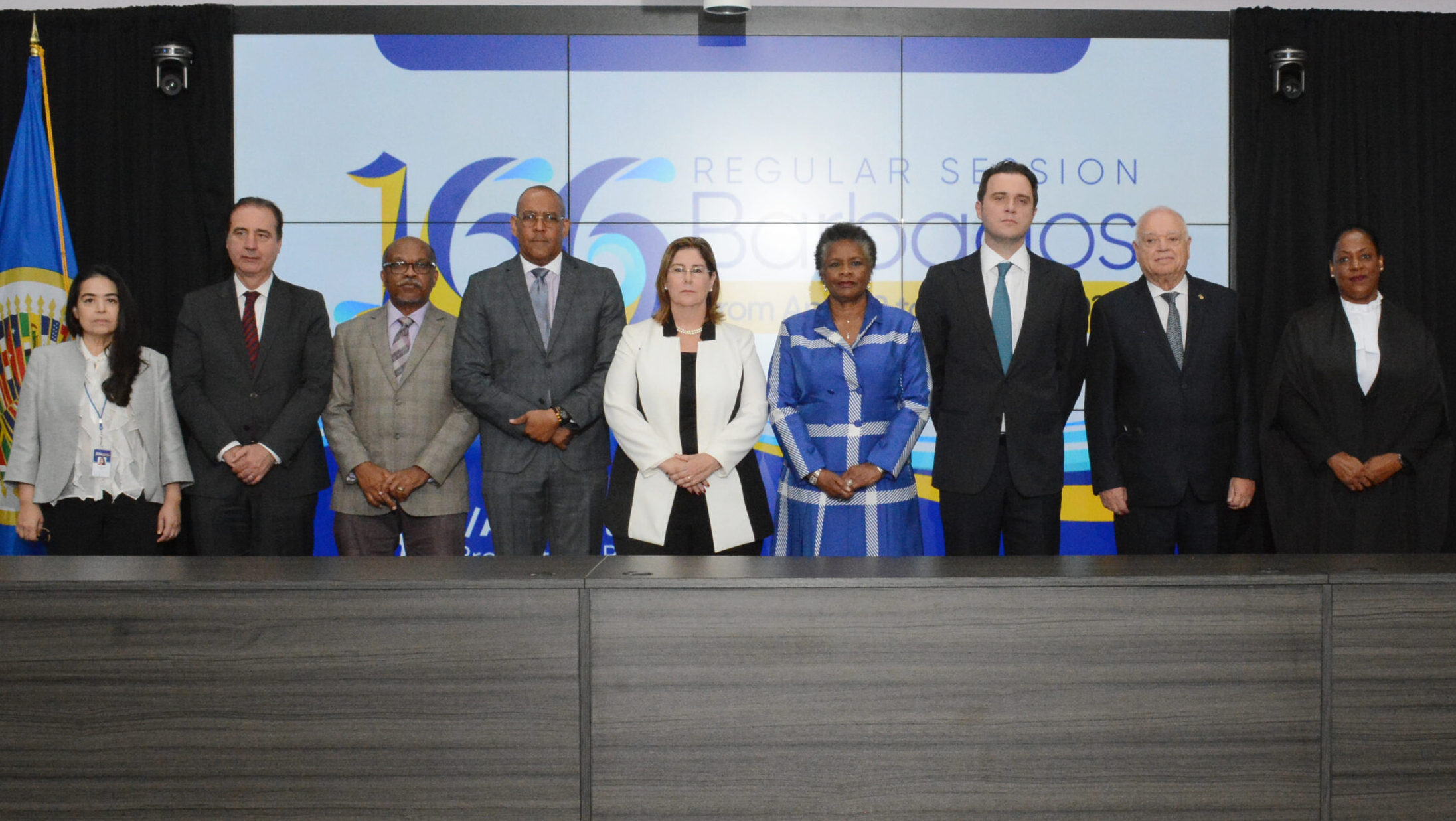IACHR's 166th Regular Session Marks Key Step in Climate Crisis Fight, Says Minister Symmonds

April 23, 2024
Minister of Foreign Affairs and Foreign Trade Kerrie Symmonds highlights the significance of the Inter-American Human Rights Court's 166th Regular session in addressing the climate crisis and its implications on human rights.
Minister of Foreign Affairs and Foreign Trade Kerrie Symmonds has described the Inter-American Human Rights Court’s (IACHR) 166th Regular session being held here as “a seminal global moment” in the fight against the climate crisis.
His comment came during the inauguration ceremony on Monday, at The University of The West Indies, Cave Hill Campus, Sagicor Cave Hill School of Business and Management Building.
He noted that the IACHR proceedings are a pivotal step towards an international legal stance regarding the consequences of the climate crisis and how it intersects with human rights, as well as determining compensation.
“We are standing at a seminal moment in global history in this fight against the climate crisis. As an international community, we are now at the moment where the true legal consequences of the climate crisis are being determined. This determination, we respectfully submit, must include our rights to compensation for the ravages caused by this emergency, especially in circumstances where small island developing states are not the principal polluters but are disproportionately affected and impacted by the result of the pollution,” the minister stated.
He stressed that for some time now, Barbados has been advocating for climate justice but has only been able to do so from “a perspective of diplomatic and moral exchanges”, and he was pleased that steps were being taken to establish legal obligations.
Minister Symmonds stressed: “Moral suasion, therefore, has been the constraints within which we have interrogated these issues. These hearings will now take us a step further by evaluating and by establishing the legal obligations which are attendant upon this climate emergency and its consequences for multiple millions of people whose lives and indeed whose livelihoods are now being threatened, and quite frankly, in some cases, being decimated. The rights and the well-being of people, we believe, cannot be separated from the well-being of the planet.”
President of the IACHR Nancy Hernández López thanked the Government of Barbados for hosting the sessions and to all participants, observers, and supporters of the Court.
She said the IACHR is committed to helping bring balance to the climate change emergency and human rights protection, and all stakeholders should actively engage in addressing these issues.
“The Court remains steadfast in its commitment to impartiality and the pursuit of justice for all. As we aim to reflect on the intersection of climate change and human rights, it is clear that these are global challenges that require collective action and cooperation.
“While the Court plays a vital role in shaping human rights standards, it is essential for all stakeholders to actively engage in addressing the pressing issues of climate change and its impact on human rights. Our collective efforts must be guided by a commitment to fairness, equity, and the protection of the most vulnerable populations . . . .Together, we can work towards a more just and sustainable future for all,” Hernández López said.
Over the next few days, the IACHR will hear the pleadings and arguments of 64 intervenors who have made written submissions, including those from Barbados, Chile and Colombia.
(BGIS)


